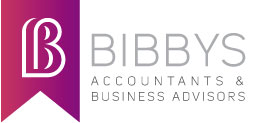It’s been an unprecedented few weeks, and obviously businesses of all sizes are needing to respond and react to the daily changing challenges presented by the current coronavirus outbreak.

This article shares a summary of some of the key announcements for businesses during the pandemic. We’d like to thank Mercia for putting this valuable information together.
Please be aware that this is the position as at Friday 20 March 2020, and that it is not designed to be a comprehensive summary of all measures announced. This information will not be continually updated, but we hope that the information will be a useful summary of the current position from a business perspective.
COVID-19 Business Measures
The coronavirus (COVID-19) pandemic has caused major disruption to businesses and economies worldwide. The UK government has responded to COVID-19 with measures aimed at delaying its spread and mitigating damage to the economy with a substantial stimulus package.
Some of the measures announced by the Prime Minister in the daily briefings apply throughout the UK, however some measures relate to devolved taxes, such as Business Rates. The Scottish Government, Welsh Government and Northern Ireland Executive have been swift to respond with their own measures.
This is a fast-moving area and UK Government is publishing details of further measures here.
We set out below a summary of some key measures announced to support businesses, including the announcement of a significant package of measures on 17 March 2020 and some of the key areas that have been updated and announced since then.
Increases and extensions to business rates reliefs
In England
The UK government had previously announced business rates discounts of 50% for retailers, cinemas and music venues with a rateable value below £51,000, and a £5,000 discount for pubs. On 17 March the Chancellor Rishi Sunak announced that the business rates discount will be increased to 100% and expanded further to include all hospitality, retail and leisure businesses, no matter what their rateable value, for the 2020/21 tax year.
Many small businesses pay little or no business rates because of Small Business Rates Relief (SBRR). The UK Government will supply funding for local authorities in England, which will provide one-off £10,000 grants to businesses currently eligible for SBRR or Rural Rate Relief. In addition, one-off grants of £25,000 will be available to retail, hospitality and leisure businesses operating from premises with a rateable value between £15,000 and £51,000.
Scotland
The Scottish Government has confirmed: a full year’s 100% non-domestic rates relief for retail, hospitality and tourism businesses.
In addition £10,000 grants will be available for small businesses in receipt of the Small Business Bonus Scheme or Rural Relief, and £25,000 grants will be available for hospitality, leisure and retail properties with a rateable value between £18,000 and £51,000. Click here for more information.
Northern Ireland
The Northern Ireland Executive has committed to providing a three month rates holiday to all businesses from April to June.
In addition, the Northern Ireland Executive is making grants of £10,000 available to all small businesses who are eligible for the Small Business Rate Relief Scheme and a grant of £25,000 will be to be provided to companies in the hospitality, tourism and retail sectors with a rateable value from £15,000 up to £51,000. Click here for more information.
Wales
In Wales retail, leisure and hospitality businesses with a rateable value of £51,000 or less will receive 100% non-domestic rates relief. Pubs with a rateable value of between £51,000 and £100,000 will receive a £5,000 reduction on their bill.
The Welsh Government has announced that £850 million will be available for a new grant scheme for businesses.
All businesses currently eligible for Small Business Rates Relief (those with a rateable value up to £12,000) will receive a grant of £10,000. Retail, leisure and hospitality businesses with a rateable value between £12,001 and £51,000 will receive a grant of £25,000.
The Welsh Government is also establishing a hardship fund to provide targeted support for certain other businesses. Click here for more information.
The Coronavirus Business Interruption Loan Scheme
In the Budget the Chancellor Rishi Sunak announced the implementation of the Coronavirus Business Interruption Loan Scheme, which will support the continued provision of finance to UK businesses during the COVID-19 outbreak. Delivered by the British Business Bank, the scheme will temporarily replace the Bank’s Enterprise Finance Guarantee Scheme, with an additional £1 billion made available on top of existing support supplied via the programme.
The UK Government will increase the scope of the Business Interruption Loan Scheme announced in the Budget from £1.2 million to £5 million, with no interest due for the first six months.
The UK Government guidance advises that this scheme will launch early ‘in the week commencing 23 March’ with the aim of supporting primarily small and medium-sized businesses to access bank lending and overdrafts.
The guidance states: ‘The government will provide lenders with a guarantee of 80% on each loan (subject to a per-lender cap on claims) to give lenders further confidence in continuing to provide finance to SMEs.
‘The government will not charge businesses or banks for this guarantee, and the scheme will support loans of up to £5 million in value. Businesses can access the first six months of that finance interest free, as the government will cover the first six months of interest payments.
‘Further details, including on the lenders providing access to this scheme will be announced in the coming days.’
Off payroll working in the private sector
The government has announced that the rules to extend off payroll working to the private sector will be deferred until 6 April 2021. The change to the rules has been beset by ‘high levels of misinformation in the market’ and lack of contractor awareness. It has now been postponed until 6 April 2021 as there is a greater need than ever for clarity around what is happening.
This announcement comes as part of the UK Government’s response to the ongoing spread of the COVID-19 virus to help businesses and individuals. The change is ‘a deferral, not a cancellation’ of the policy, and the UK Government remains ‘committed to reintroducing’ the change.
Extended access to Statutory Sick Pay (SSP)
As part of a package to widen the scope of SSP and make it more accessible, SSP entitlement will begin from the first day of sickness absence, rather than the fourth, for those who have COVID-19, or self-isolate in accordance with government guidance.
SSP relief for SMEs
Small and medium-sized businesses will be allowed to reclaim SSP paid for absence due to COVID-19. The refund will cover up to two weeks’ SSP per eligible employee who has claimed SSP as a result of COVID-19. Employers with fewer than 250 employees will be eligible, with the size of an employer being determined by the number of people they employed as of 28 February 2020. Employers should maintain records of staff absences, but employees will not need to provide a GP fit note.
Expanded access to Time to Pay
Businesses and self-employed individuals, in financial distress and with outstanding tax liabilities, may be eligible for support with their tax affairs through existing Time to Pay arrangements.
HMRC has set up a dedicated COVID-19 helpline, on 0800 0159 559, for those in need, and they may be able to agree a bespoke Time to Pay arrangement. Time to Pay gives businesses a time-limited deferral period on HMRC liabilities owed and a pre-agreed time period to pay these back.
If you would like further advice on this or other business matters in these challenging times please contact us.

